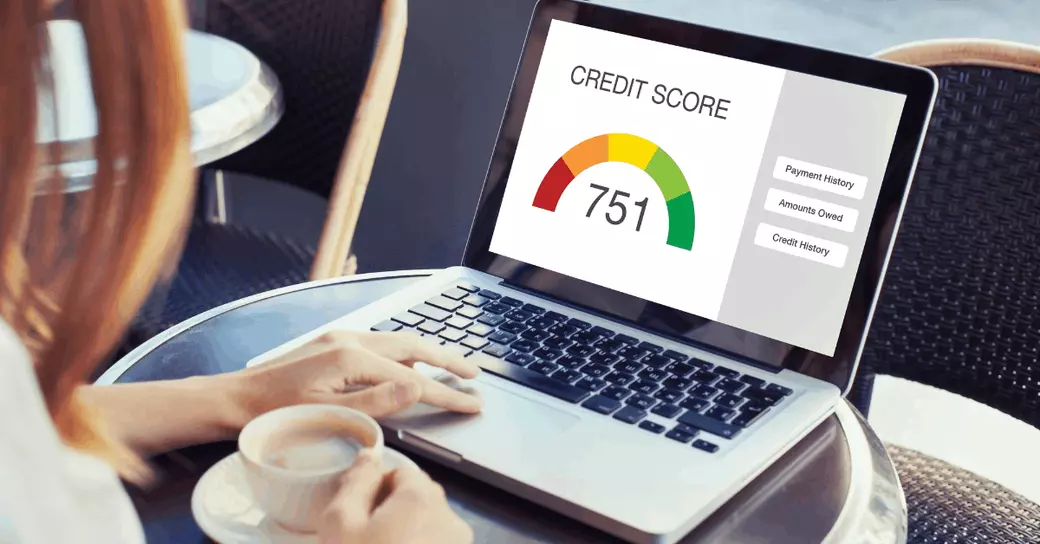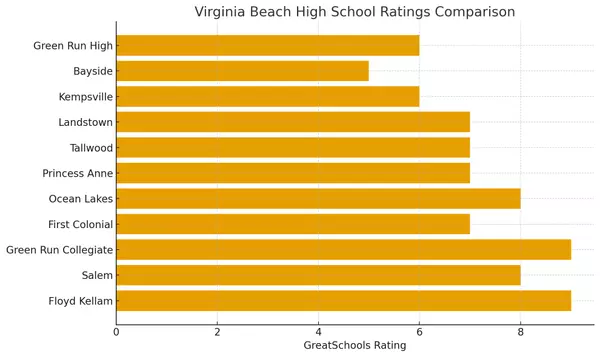What Credit Score Is Needed to Buy a House?

A favorable credit score for buying a home typically falls within the high 600s to 700s. Scores in this range are considered "good," while anything higher is seen as "excellent," helping borrowers qualify for the best mortgage rates. Some loan types even allow buyers to secure a mortgage with a credit score as low as 500.
It's possible to buy a house with a variety of credit scores, but the higher your score, the better your chances of getting favorable loan terms. If you're paying for a home in cash, your credit score won’t matter, as you won’t be working with a lender.
How important is your credit score when buying a home?
Your credit score is critical when it comes to buying a house. Not only does it affect your ability to qualify for a mortgage, but a higher score typically means a lower interest rate. Even a difference of 0.25% to 0.5% in interest can save you thousands of dollars over the life of a loan.
Lenders rely on credit reports because they give a snapshot of how well you’ve managed debt over time. A high score signals that you're a responsible borrower, while a low score suggests you’ve had issues handling debt, making lenders see you as a higher risk. Beyond the credit score, lenders look at your entire credit report, which includes your payment history, types of credit accounts, and whether you've had any significant financial problems like collections or bankruptcy.
Mortgage FICO scores: What lenders use for home buying
When applying for a mortgage, lenders use your FICO score, which is a credit score model specifically used for mortgages. FICO scores are based on data from the three major credit bureaus—Experian, Equifax, and TransUnion—and range from 300 to 850.
What influences your FICO score?
Your FICO score is calculated using various factors, including:
- Payment history: 35% (whether you pay debts on time)
- Credit utilization: 30% (how much of your available credit you’re using)
- Length of credit history: 15% (how long you’ve had credit accounts)
- Credit mix: 10% (types of credit accounts, like credit cards and loans)
- New credit activity: 10% (recent applications for credit)
What if you're buying with a partner?
If you're buying a home with a co-borrower, your lender will look at both credit scores and use the lowest middle score to determine your loan terms. For example, if your middle score is 720 and your co-borrower’s middle score is 660, the lender will use 660 as the decision score. This can affect the loan terms you qualify for.
What is a good credit score to buy a house?
A credit score of 720 or higher is considered good, while a score above 800 is ideal and can unlock the best loan rates. If your score is around 670, you can still qualify for decent rates, though they might not be as low as those for higher scores.
Mortgage credit score ranges
Lenders use FICO scores to assess your eligibility for home loans. However, if you check your credit score through a bank or credit card, you might see a Vantage score, which can differ slightly. Both scores use a range of 300 to 850, but weigh factors differently. Here’s a comparison:
| Credit Rating | FICO Score | Vantage Score |
|---|---|---|
| Excellent | 800-850 | 720 and above |
| Good | 670-799 | 660-719 |
| Fair | 580-669 | 620-659 |
| Poor | Below 580 | Below 620 |
Minimum credit score to buy a house
The minimum credit score needed depends on the type of loan:
- Conventional loans: Typically require a score between 620 and 660.
- FHA loans: Can be obtained with a score as low as 500, but most lenders prefer 580 or higher.
- VA loans: Typically require a score between 580 and 620.
- USDA loans: Usually require a score between 580 and 620.
- Jumbo loans: Often require a score of 680 to 700.
Other factors lenders consider
In addition to your credit score, lenders look at your:
- Income and assets: You’ll need proof of income (W2s, pay stubs, tax returns) and assets (bank statements) to show you can afford the mortgage.
- Employment history: Lenders verify your job status and income stability.
- Debts: Lenders will review your current debt obligations to ensure you can manage monthly mortgage payments.
- Debt-to-income (DTI) ratio: This ratio compares your monthly debt payments to your gross monthly income. A healthy DTI is generally below 50%.
Loan-to-value (LTV) ratio
Lenders calculate your LTV ratio by comparing the loan amount to the appraised value of the home. A lower LTV ratio can help you avoid mortgage insurance and secure better loan terms.
How to improve your credit score
If you're aiming to boost your credit score before buying a home, consider these tips:
- Pay off delinquencies: Prioritize paying off any late debts.
- Use automatic payments: Set up automatic payments to avoid missing due dates.
- Lower your credit utilization: Keep your credit card balances low compared to your credit limits.
- Keep accounts open: Even if you don’t use them, keeping older accounts open can help improve your credit history.
Buying a home with bad credit
Even with a low credit score, homeownership may still be possible. Some loans, like FHA loans, allow for scores as low as 500 with a larger down payment. Speak with a lender to explore your options.
FAQs: Credit Scores and Home Buying
- Can you buy a house without a credit score? If you're paying in cash, yes. If you're financing, no—you’ll need a credit score.
- Do you need good credit to buy a house? You can buy a house with less-than-perfect credit, but expect higher interest rates and larger monthly payments.
- What credit score is ideal for buying a home? A score of 720 or above is ideal for securing the best loan terms.
Categories
- All Blogs (51)
- Buyer Stories (1)
- Buyer tips (7)
- Buyers (3)
- Buying (2)
- Buying Advice (3)
- Buying Assistance (3)
- Credit & Debt (2)
- Down Payment (1)
- Financing (8)
- Financing Options (1)
- First Time Home Buyer (20)
- Foreclosures (1)
- Interest Rates (2)
- Loans (4)
- Military (6)
- Mortgage Interest Rates (1)
- Mortgage Rates (1)
- New Construction (1)
- Personal Finance (2)
- Refinance (1)
- Schools (11)
- Tax tips (1)
- Title & Closing (1)
- VA Loans (1)
Recent Posts











